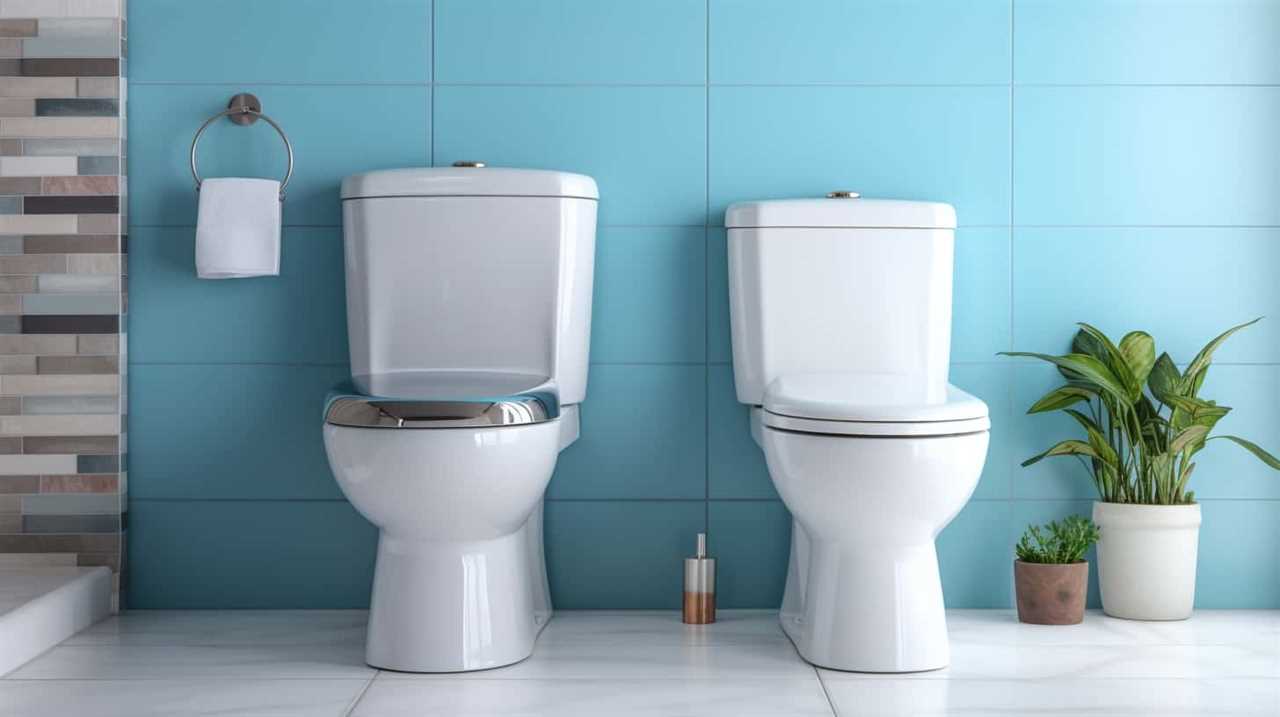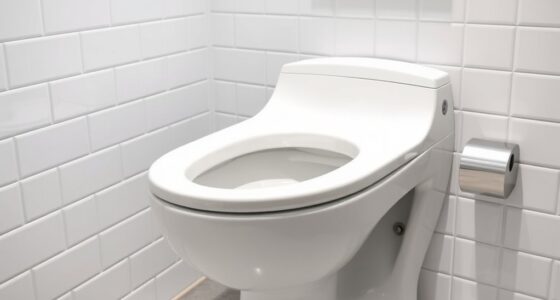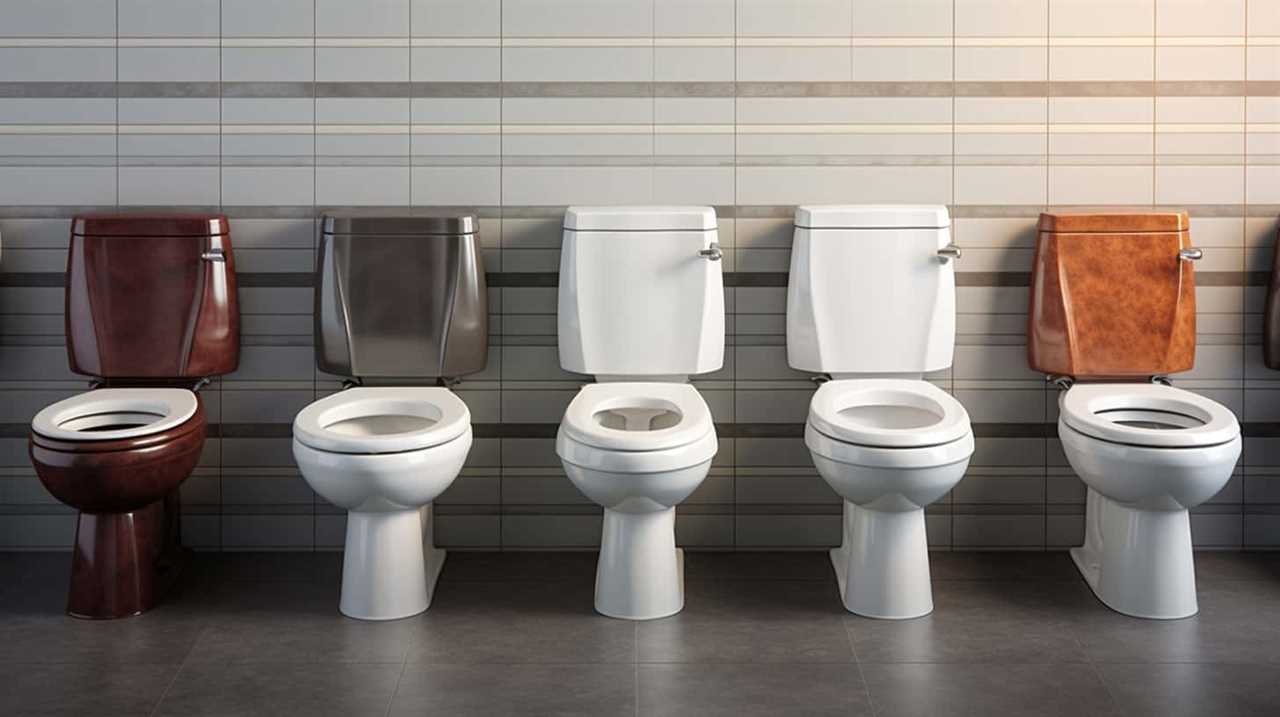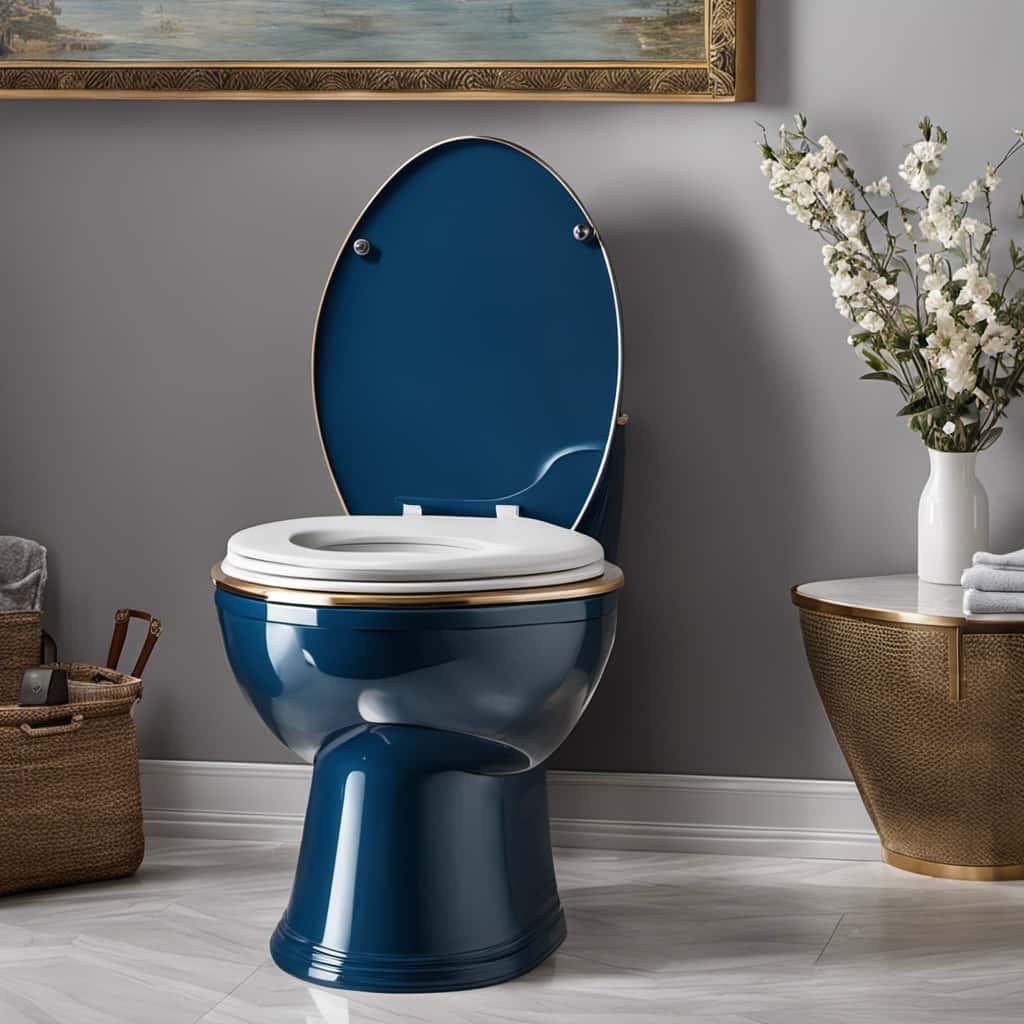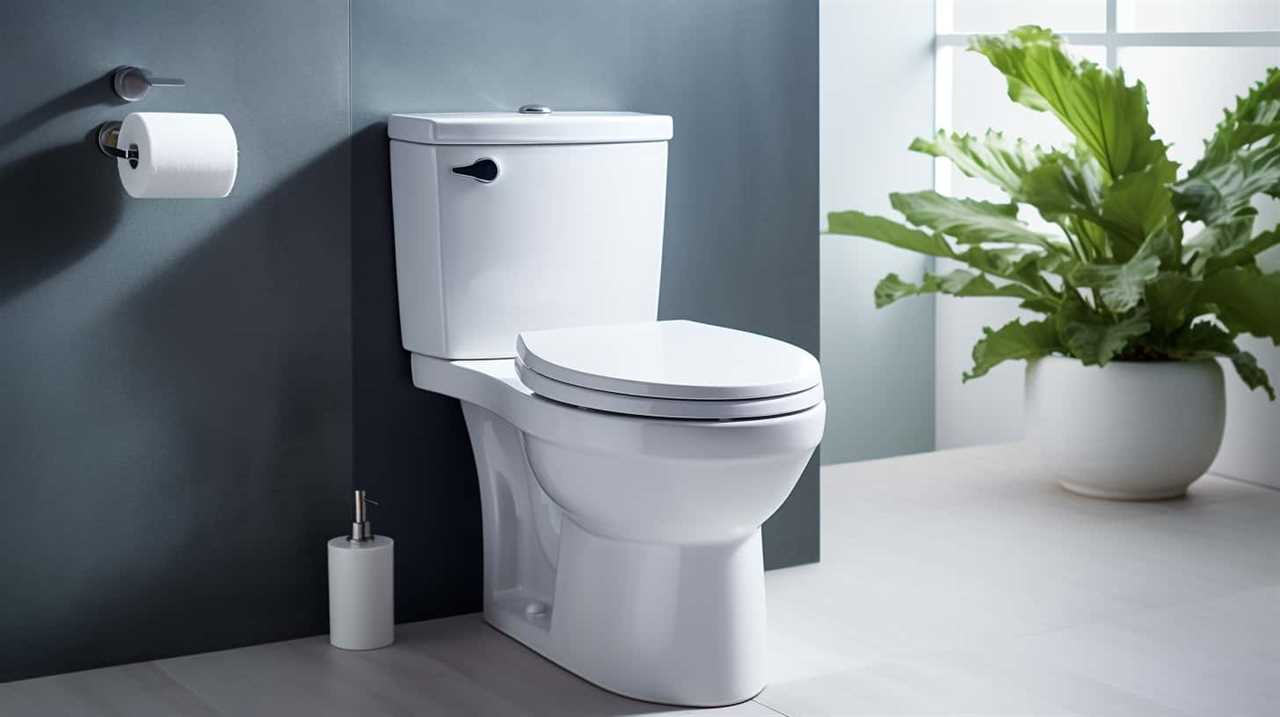Not sure which items are safe to flush down the toilet? We have the answers for you!
In this article, we’ll provide you with a concise and informative guide on what is okay to flush.
From toilet paper to water-soluble feminine hygiene products and even prescription medication, we’ll discuss the items that won’t cause any harm to your plumbing system.
Stay tuned to master the art of responsible flushing!
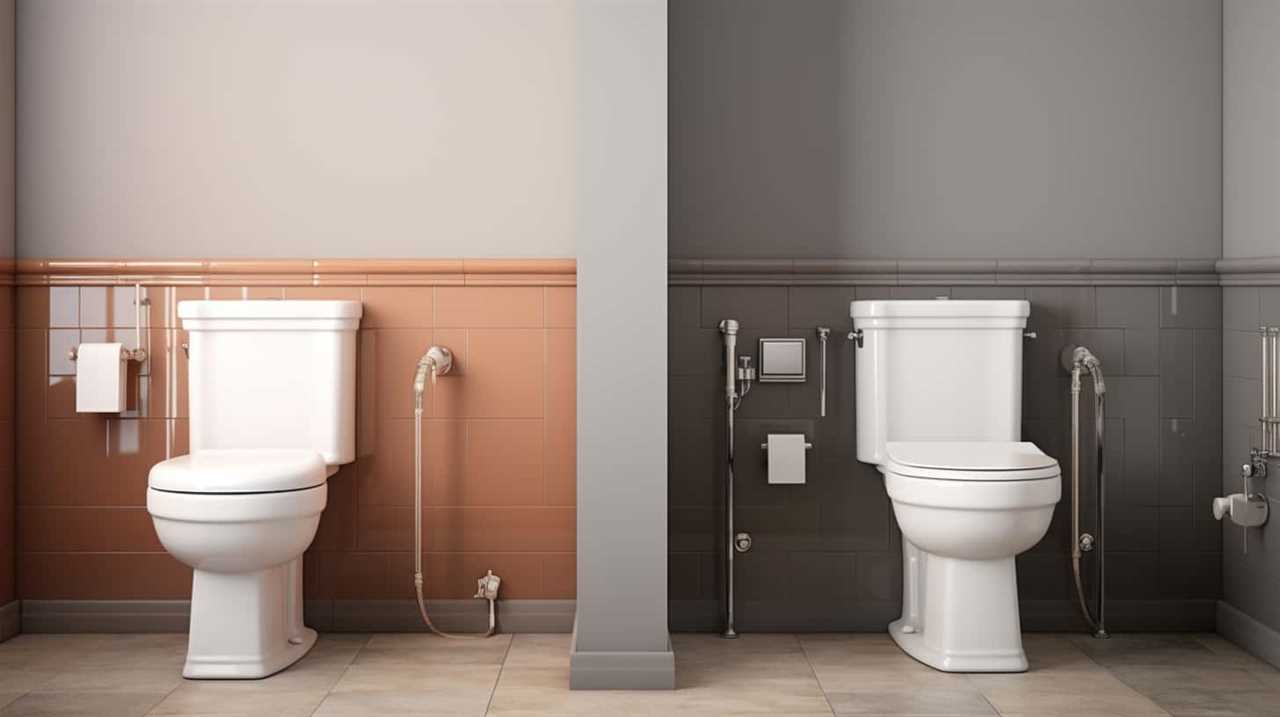
Key Takeaways
- Toilet paper is safe to flush down the toilet.
- Alternatives to traditional toilet paper, such as wet wipes, can cause blockages in sewage systems.
- Feminine hygiene products like tampons, pads, and panty liners should never be flushed.
- Flushing prescription medication can contaminate water sources and harm aquatic life.
Toilet Paper
Toilet paper is one of the few items that we can safely flush down the toilet. While there are alternatives to traditional toilet paper, such as bidets and wet wipes, it’s important to consider the environmental impact of our choices.
Toilet paper alternatives may seem like a more eco-friendly option, but they often come with their own set of problems. Wet wipes, for example, aren’t biodegradable and can cause blockages in sewage systems. As for bidets, they require water and energy to function, which may not be sustainable in certain regions.
Therefore, it’s crucial to strike a balance between personal comfort and environmental responsibility when it comes to toilet paper usage.
Now, let’s move on to the next section and discuss the proper disposal of human waste.
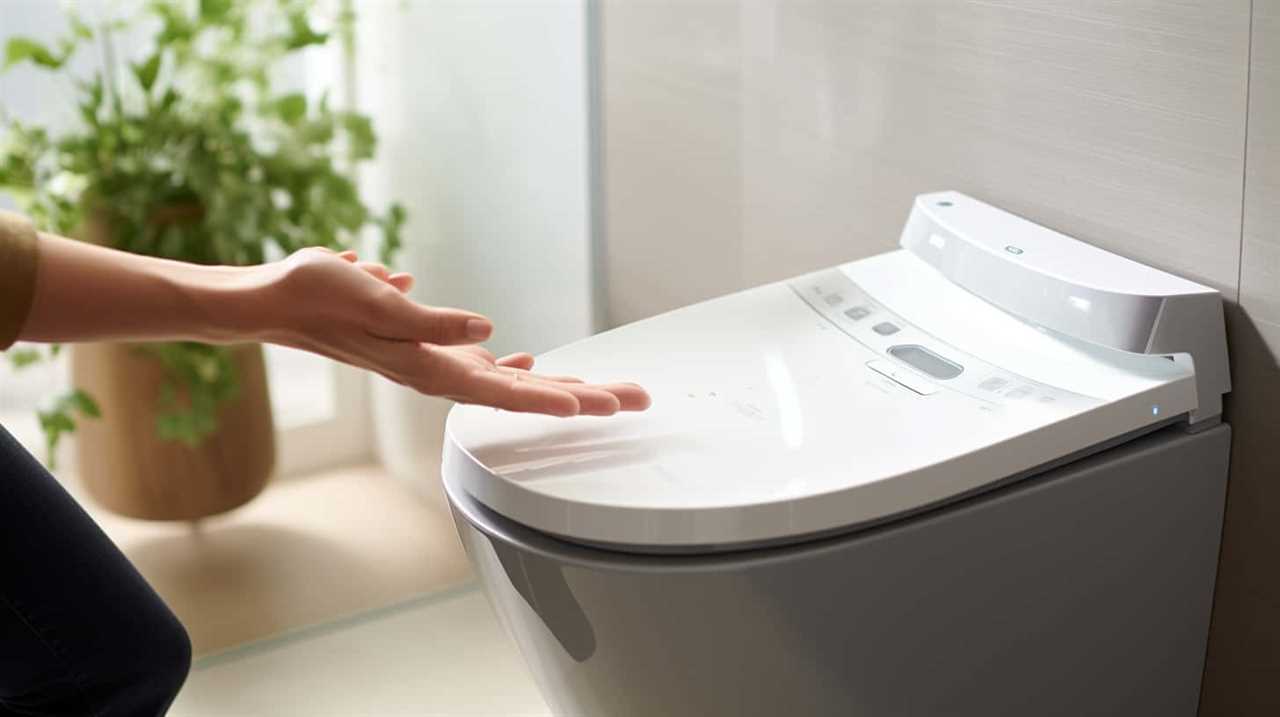
Human Waste
When it comes to our waste, it’s important to dispose of it properly to ensure hygiene and prevent any potential health hazards. Here are three items related to human waste that shouldn’t be flushed down the toilet:
- Flushable wipes: Despite their name, flushable wipes can cause serious problems for both sewer systems and septic systems. These wipes don’t break down easily and can lead to clogs and blockages.
- Feminine hygiene products: Tampons, pads, and panty liners should never be flushed down the toilet. These products can expand and cause blockages in pipes, leading to costly repairs.
- Diapers: Although it may seem convenient, flushing diapers down the toilet is a big no-no. Diapers don’t break down easily and can cause major clogs in both residential and municipal sewer systems.
Water-soluble Feminine Hygiene Products
Flushing water-soluble feminine hygiene products down the toilet can also lead to blockages and costly repairs. While these products are designed to dissolve in water, they can still cause plumbing issues. When these items are flushed, they can accumulate in the pipes and create clogs, leading to backups and potential damage.
Moreover, even though water-soluble feminine hygiene products may dissolve, they can still have an environmental impact. When flushed, they can end up in the sewage system and eventually make their way into bodies of water, causing pollution. It’s important to dispose of these products properly by wrapping them in toilet paper or placing them in a designated waste bin. By doing so, we can minimize the potential for plumbing problems and reduce their environmental impact.
Transitioning to the subsequent section, let’s now explore the topic of biodegradable baby wipes.
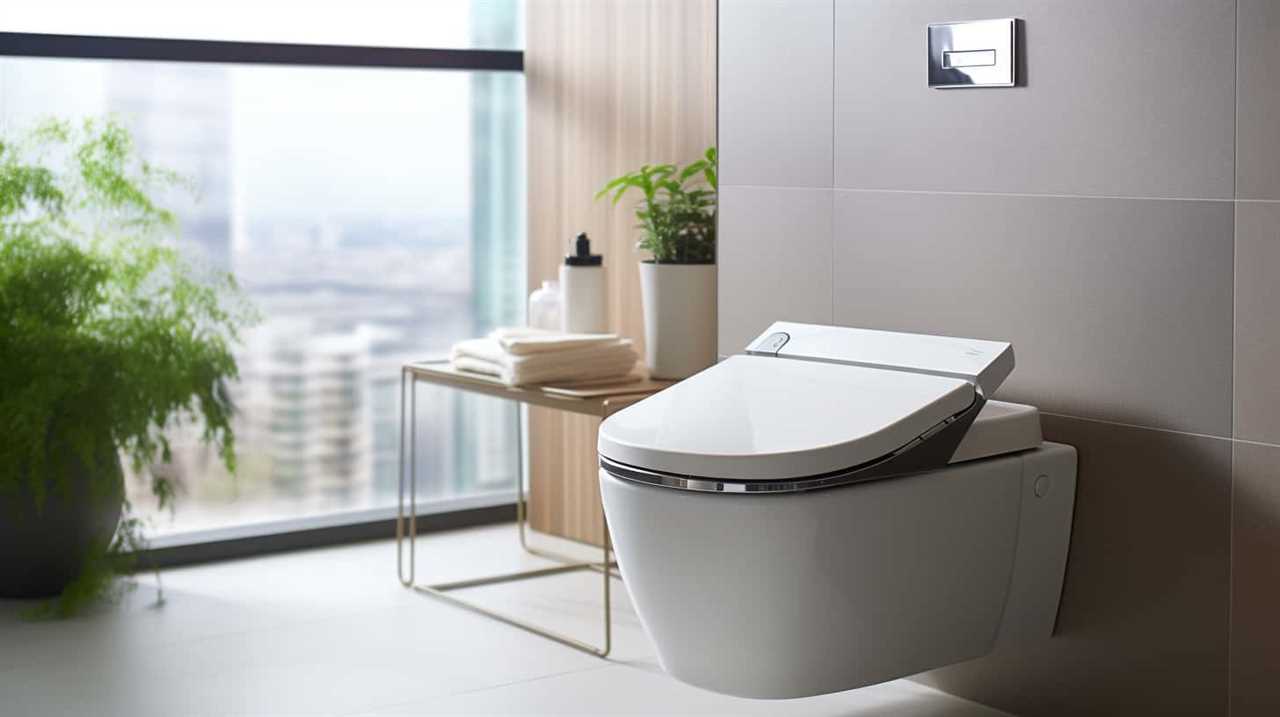
Biodegradable Baby Wipes
As we continue our exploration of flushable items, let’s now turn our attention to the topic of biodegradable baby wipes. While it may be tempting to flush these wipes down the toilet, it’s important to consider their environmental impact. Despite being labeled as ‘flushable,’ most biodegradable baby wipes don’t break down completely in the sewer system.
Here are three eco-friendly alternatives to flushing biodegradable baby wipes:
- Dispose of them in a trash bin: By throwing these wipes in the trash, you can prevent potential clogs in your plumbing system and reduce the strain on wastewater treatment plants.
- Use reusable cloth wipes: These can be washed and reused, minimizing waste and reducing the environmental impact of disposable wipes.
- Opt for toilet paper: Toilet paper is designed to break down quickly in water, making it a safer and more environmentally friendly option.
Now that we’ve discussed the biodegradable baby wipes, let’s move on to the next topic: prescription medication.
Prescription Medication
Prescription medication poses risks when flushed down the toilet. It’s crucial to understand the proper disposal methods for prescription drugs to minimize their environmental impact. Flushing medication can contaminate water sources and harm aquatic life.
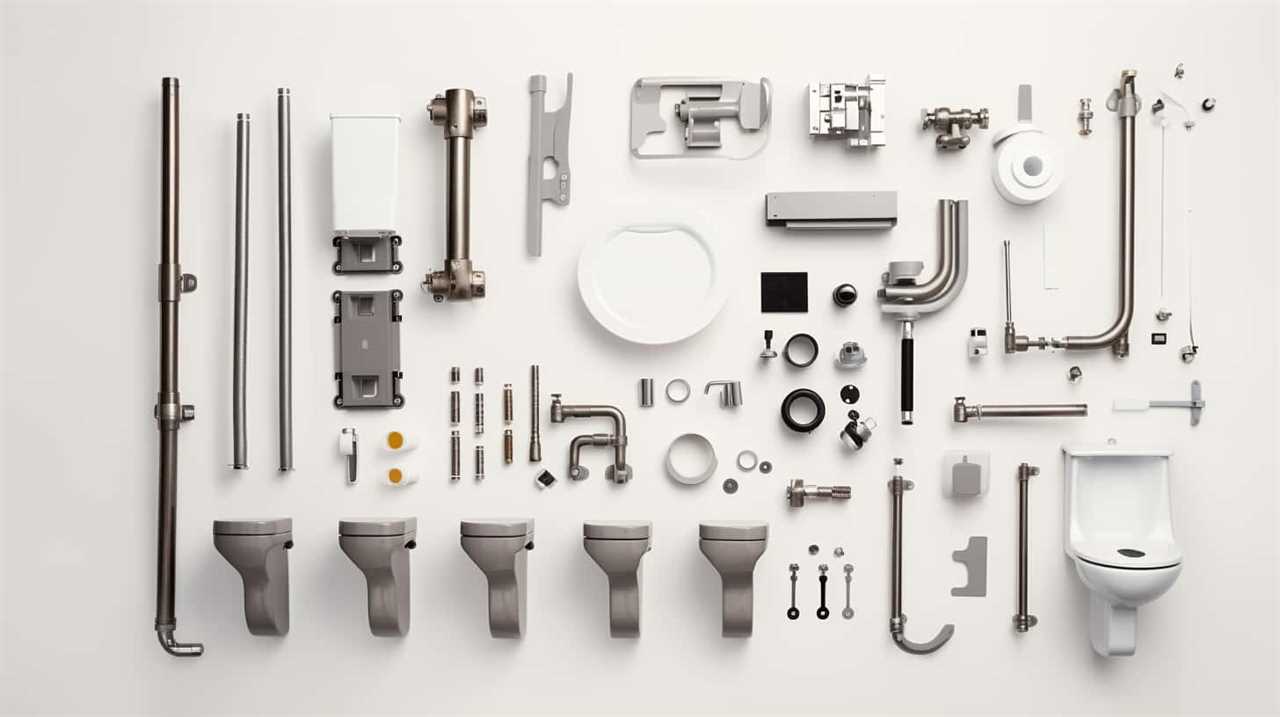
To ensure proper disposal, first, check if there are any take-back programs in your area where you can return unused or expired drugs. If not, follow these steps:
- Remove the medication from its original container and mix it with an undesirable substance like coffee grounds or cat litter.
- Place the mixture in a sealed bag or container to prevent leakage.
- Dispose of it in the regular trash.
Frequently Asked Questions
Can I Flush Wet Wipes Down the Toilet?
Yes, we can flush wet wipes down the toilet, but it is not recommended. The disadvantages of wet wipes include clogging pipes and damaging sewage systems. Alternatives to flushing wet wipes include disposing of them in the trash.
Is It Safe to Flush Cotton Balls or Swabs Down the Toilet?
Flushing cotton balls or swabs down the toilet is not safe. They can cause clogs in sewage systems and impact wastewater treatment processes. Proper disposal alternatives for cotton balls include throwing them in the trash.
What About Disposing of Expired or Unused Prescription Medication in the Toilet?
When it comes to disposing of expired or unused prescription medication, it is important to follow proper disposal methods. Flushing them down the toilet is not recommended as it can contaminate water sources and harm the environment.
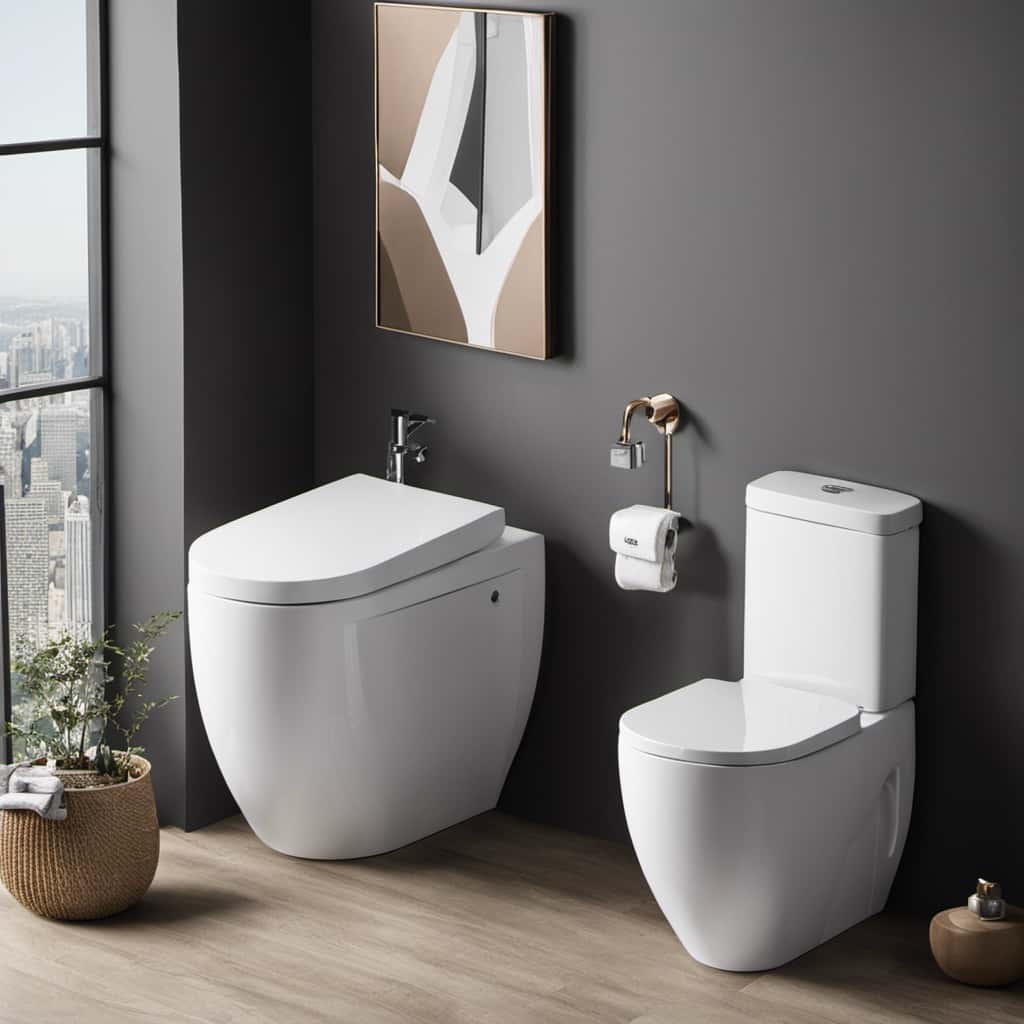
Can I Flush Tampons or Sanitary Pads Down the Toilet?
We cannot flush tampons or sanitary pads down the toilet. It is also not permissible to flush dental floss or hair. Paper towels and tissues should not be flushed either, as they can cause clogs and damage to the plumbing system.
Are There Any Specific Brands of Water-Soluble Feminine Hygiene Products That Are Recommended for Flushing?
There aren’t specific brands of water-soluble feminine hygiene products recommended for flushing. However, eco-friendly alternatives like biodegradable pads and tampons exist, which are designed to break down safely in water.
Conclusion
In conclusion, it’s important to remember that only toilet paper, human waste, water-soluble feminine hygiene products, biodegradable baby wipes, and prescription medication should be flushed down the toilet.
Anything else, such as paper towels, wipes, or non-flushable hygiene products, can cause clogs and damage to the plumbing system.
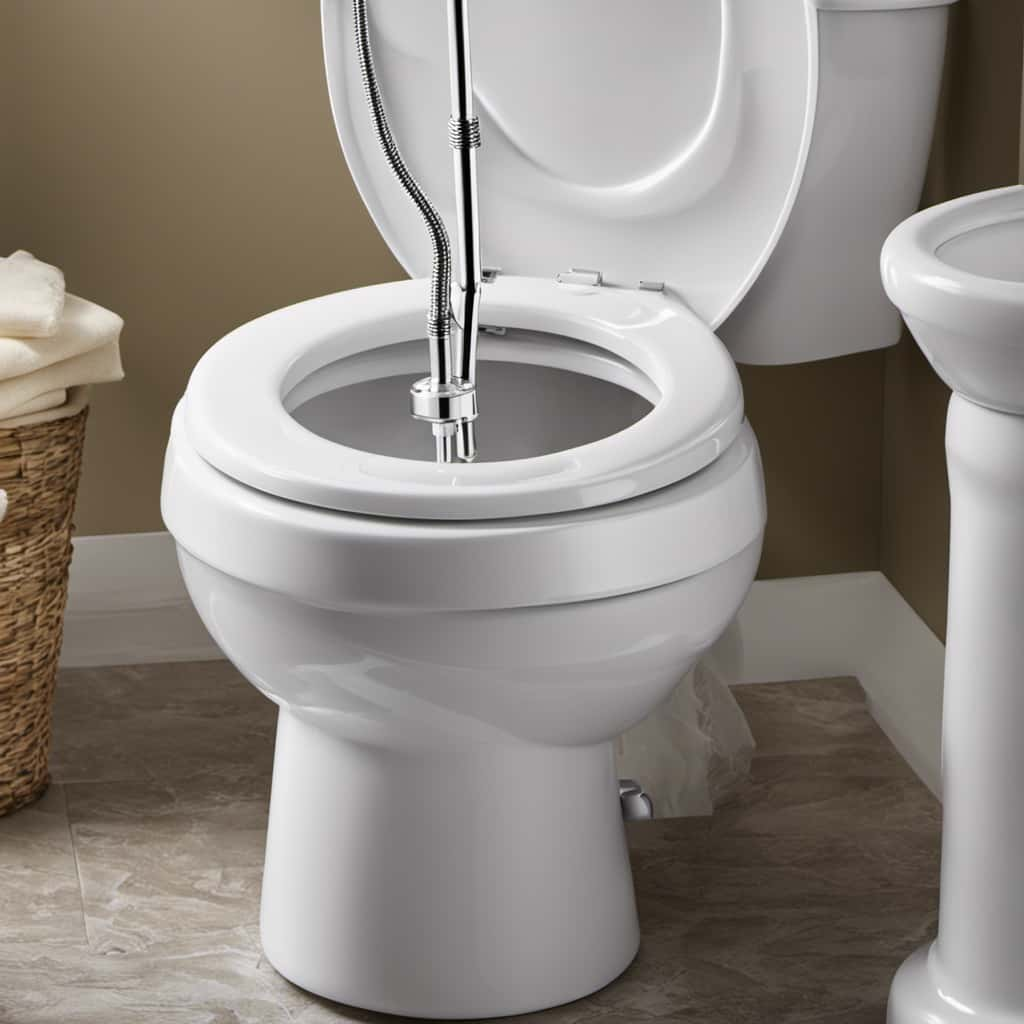
Flushing the wrong items down the toilet is like pouring sand into the gears of a well-oiled machine—it disrupts the flow and can lead to costly repairs.
